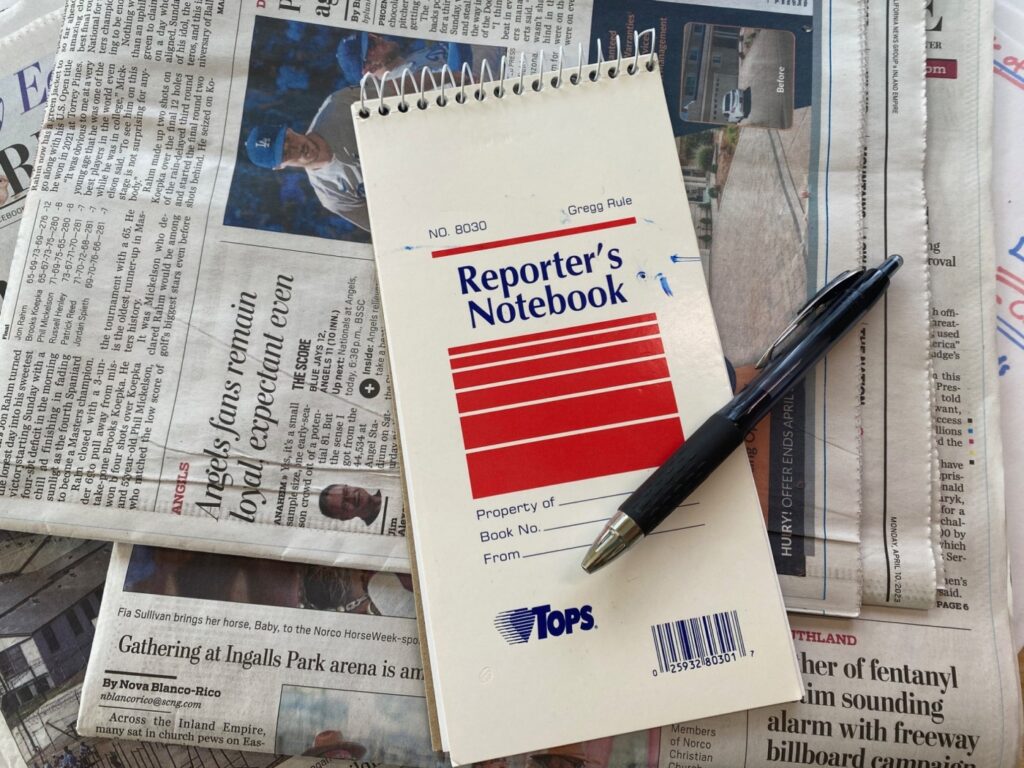
Rare enough is bipartisan legislation these days, whether it’s in the halls of Congress or the California Legislature.
When it does occur, it’s to be applauded in itself.
But when it’s an important law sponsored by both Republican and Democratic legislators that deals with ensuring and even increasing the freedom of the press in our nation, we can’t help but cheer it.
Such is the case with legislation introduced by Republican Rep. Kevin Kiley of California and Democratic Rep, Jamie Raskin of Maryland last week in a bipartisan and bicameral — it will go to the Senate as well — that protect reporters and journalists around the country from government surveillance that, as Raskin’s office puts it. “makes it harder to hold the government accountable and harms reporters’ First Amendment rights.”
More from Raskin: “The representatives introduced the Protect Reporters from Exploitive State Spying (PRESS) Act in response to multiple episodes, in both Democratic and Republican administrations, of law-enforcement agencies secretly subpoenaing emails and phone records from reporters in order to determine their sources.”
And from Kiley: “As acknowledged by America’s founders, the freedom of the press to report on and disseminate information is critical to our republic. Our bipartisan legislation further codifies these First Amendment principles into law and will mitigate infringement upon the Constitution by the federal government.”
The law goes to what journalists know as shield protections — shielding journalists from surveillance or a forced turning-over to government of confidential notes and documents gathered in the pursuit of a story — which are already provided by 48 states, including California, within their own boundaries.
But there are no national shield protections, and the state laws do not apply to investigations by federal agencies, including the Department of Justice and its FBI. The state laws are also all written differently, and, as so much in journalism is not confined to just one of the 50 states, these protections need to be codified throughout the land.
In the upper chamber, the law is sponsored by Sens. Ron Wyden, D-Oregon, Sen. Mike Lee, R-Utah, and Sen. Richard Durbin, D-Illinois.
“Not only is this legislation imperative to shield journalists from unnecessary government surveillance, but it is also necessary to protect the public’s right to access information, hold their elected officials accountable, and actively participate in representative government. We must seize this opportunity and ensure that the Fourth Estate remains an indomitable force in its quest for truth,” says Lee.
For those of us in that Fourth Estate, who seek to hold our electeds in the three branches of the federal government accountable to those who elected them, it’s incredibly gratifying to see this support from both sides of the aisle for protecting our right to report, and your right to know.
That goes doubly because of what is understandably a sometimes fractious relationship between the press and our representatives at all levels of government. There will be times when this important legislation, if passed by the House and the Senate and signed into law by the president, will not serve the personal interests of the very people who will vote for it, if they are up to no good.
So special thanks to the Republicans and to the Democrats who wrote and sponsored it, and to those who support it with their votes and their signature. The PRESS Act is important to this nation as a whole, and it should be passed into law.
